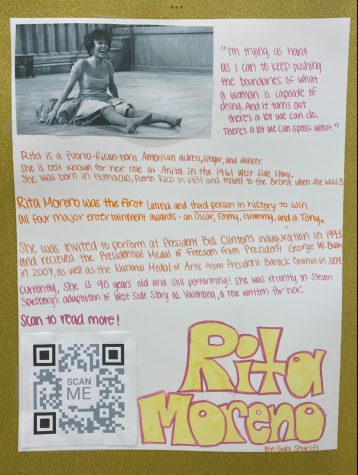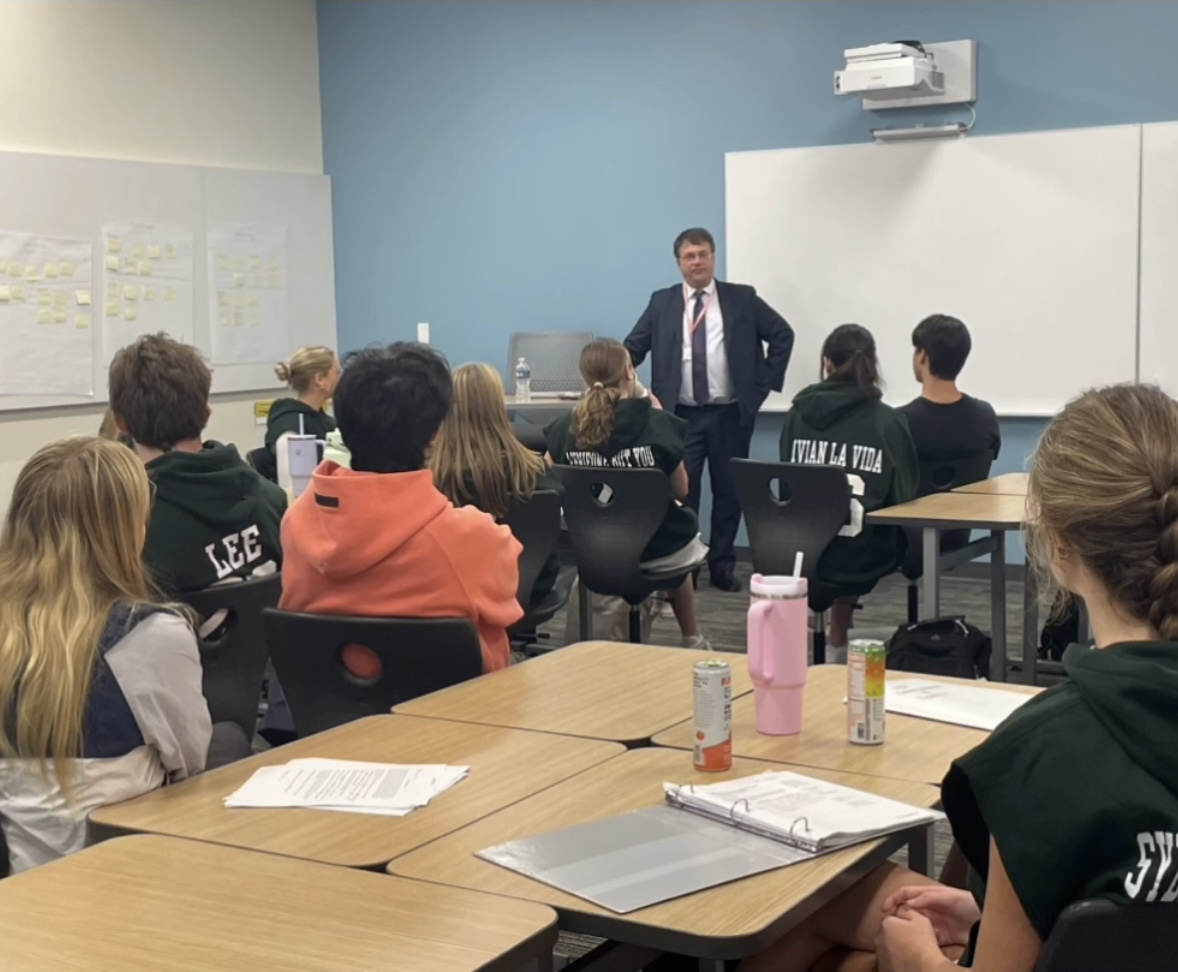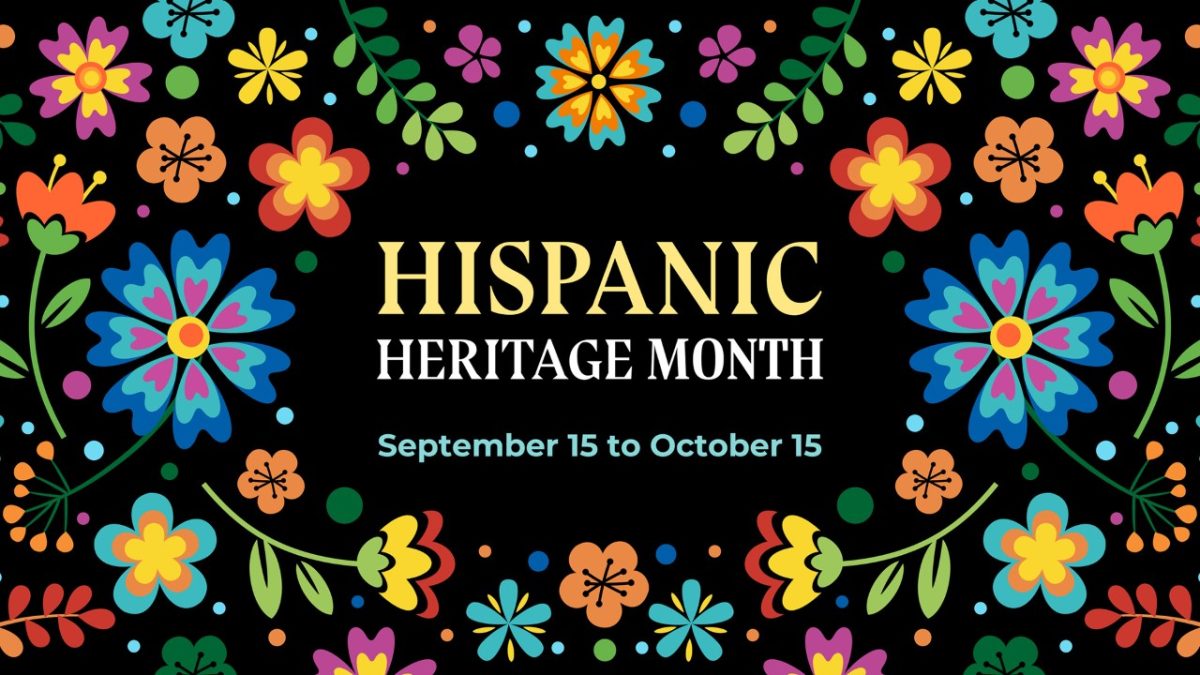Dear New Trier, Real inclusion starts with full integration
We need to do a better job at teaching Hispanic heritage
October 24, 2022

Every year, Hispanic Heritage Month kicks off on September 15th and concludes on October 15th. This cultural event is meant to honor the immense contributions made by Latinos in the United States.
The celebration was made official under President Lyndon Johnson in 1968 and expanded to a month-long celebration by President Ronald Reagan in 1988. September 15 marks the independence of many Latin American countries, which makes the date significant for so many.
Hispanic heritage month is now over for the year. This means New Trier is done with the event.
The question is, did New Trier do a good job? In order to answer that question, I thought it would be best to get other students’ opinions.
So I asked a few Hispanic/Latinx Freshmen students, as well as Freshmen students that aren’t Hispanic, to see what they had to say about the school’s efforts so far.
ND: Do you think New Trier has done a good job at honoring Hispanic Heritage Month?
Paloma: “Not really to be honest. Dance class did a good job because we learned traditional Latinx dances, but otherwise we didn’t do anything else to honor it. It seemed as if it got pushed to the side. I personally think that’s okay. I’m not sure how else we could integrate Hispanic Heritage into the school system otherwise.”
ND: Does the school environment make you feel comfortable being Hispanic/Latino at the New Trier?
Emma Goodfellow: “I’m already not very open about my Cuban heritage, but that’s primarily because I haven’t been prompted to share. I’d be willing to share at the school because of my experience of not witnessing any prejudice.
I haven’t heard anything of the sort, nor have I personally been at the forefront of any hatred. Feelings of discomfort at New Trier don’t stem from me being Cuban.”
ND: As a non Hispanic/Latino student, what has New Trier taught you about Hispanic heritage month?
Táàhah AthôdR: “New Trier has taught me a bit about the Hispanic culture.
Fun fact – Hispanics and Latinos are not the same thing. A Hispanic person is from a Spanish speaking country, like Spain, Mexico, Argentina. A Latinx is from Latin America, for example, Brazil, Cuba.”
ND:
As a non Hispanic/Latino student, why do you think Hispanic Heritage Month is important? And how did you learn about how important it is?
Cori Hatchett: “As a white student, I think that Hispanic Heritage months are important because we need to recognize people of color and how being a part of that community affects them and the struggles they have to go through. Especially living in a mostly white area, it can be hard. I actually haven’t learned anything about Hispanic Heritage month except for in dance class where we learned a latin dance. I believe learning about it is a part of the curriculum. So it’s pretty bad that we haven’t learned about it yet. Especially since Hispanic Heritage Month is over.”
These responses are somewhat mixed, but mostly students do feel that New Trier could be doing more to help educate us on Hispanic Heritage Month.
In many instances the school barely scratches the surface and has not truly helped us to understand its cultural significance.
However it shouldn’t go unnoticed that the Northfield campus has done some good work in helping students to connect to Hispanic Heritage Month.
There are visible signs to honor Hispanic history, like posters that have historical figures and many famous quotes. Some classes have found ways to honor this celebration. For example, in Theater class, students watched the 1961 musical, West Side Story. Teaching about Hispanic culture is something that is not always done well, so kudos to New Trier for getting started.
That said, our school would benefit from teaching its students more about the rich Latino history, especially when the Census Bureau estimates that there were roughly 62 million Hispanics in the United States as of 2021, making up 19% of the nation’s population. Hispanics are now officially the largest minority group in the United States. By the time you’re reading this article, the celebration will be over, and just like that, poof! Now we will have to wait until next year to talk about Latino achievements again.
New Trier students would be better global citizens and more culturally competent, if we had more of this information, year round.












































